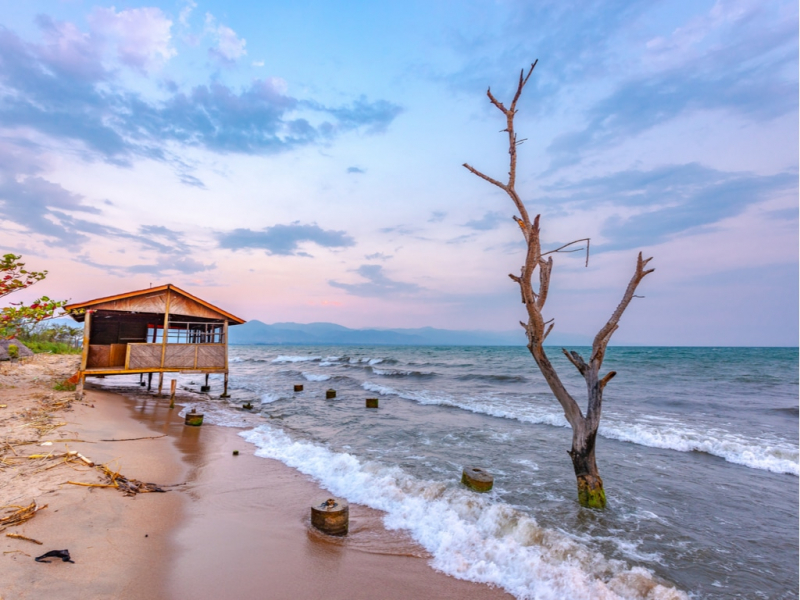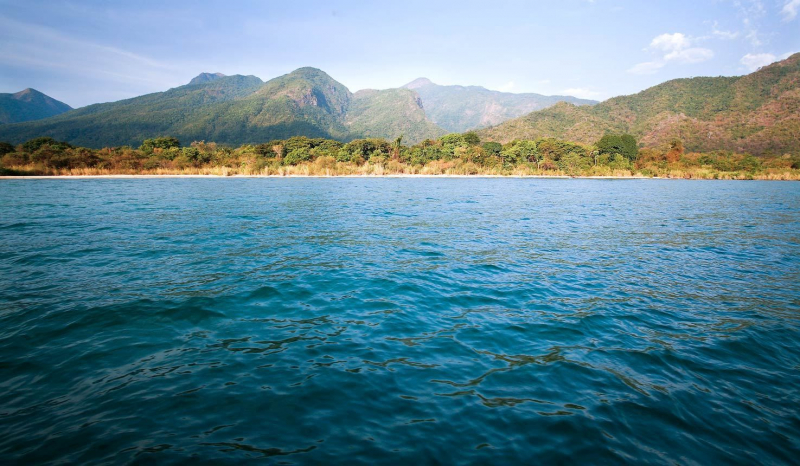Lake Tanganyika

An African Great Lake is Lake Tanganyika. After Lake Baikal in Siberia, it is the second-oldest, second-largest by volume, and second-deepest freshwater lake in the world. It is the longest freshwater lake in the world. Tanzania (46%) and the Democratic Republic of the Congo (DRC) (40%) own the majority of the lake, which is shared by four nations: Tanzania, Burundi, Zambia, and the DRC. It eventually drains into the Atlantic Ocean via the Congo River system.
Although not tidal, the fertile circulating surface water supports its residents with an abundance of plankton, which in turn supplies much-needed protein for both the local and export markets. The shallow water snail-borne parasitic disease bilharzia is prevented from spreading by the strong winds that come off the mountains in the area.
In Lake Tanganyika, there are more than 300 different species of fish, some of which are unique. The threatened Storm's water cobra, Nile crocodiles, and Zambian-hinged terrapins are among the animals that reside in this lake.
Location: Burundi, Democratic Republic of the Congo, Tanzania, Zambia














